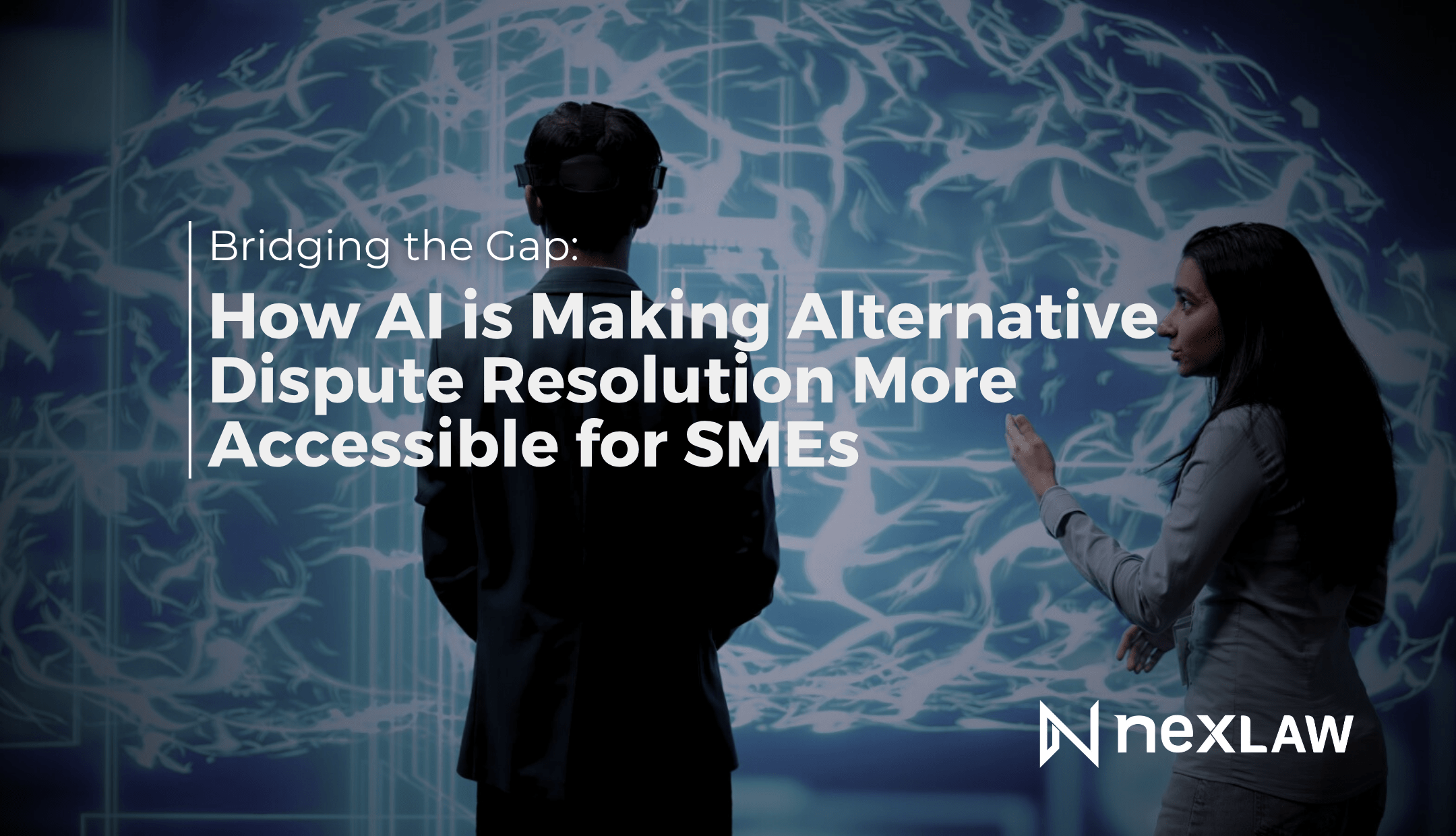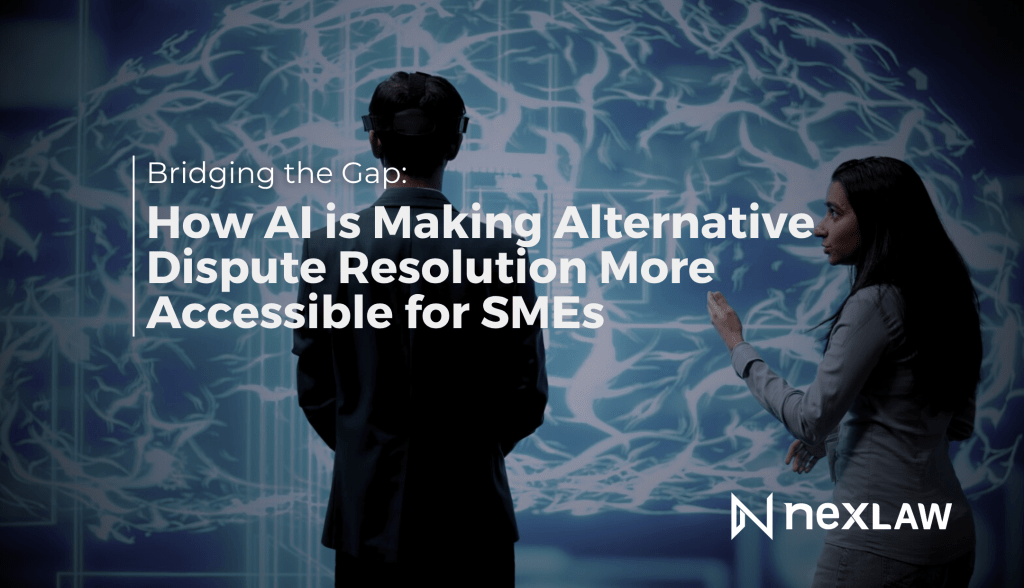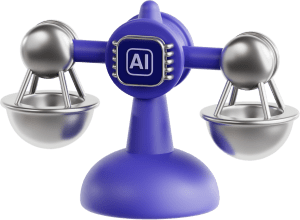Bridging the Gap: How AI is Making Alternative Dispute Resolution More Accessible for SMEs

Bridging the Gap: How AI is Making Alternative Dispute Resolution More Accessible for SMEs

Small and Medium Enterprises (SMEs) are the backbone of economies worldwide, but when disputes arise, they often face a daunting challenge. Traditional litigation can be a black hole of time, money, and emotional drain, often leaving SMEs at a significant disadvantage. This is where Alternative Dispute Resolution (ADR) comes in, offering a more flexible, cost-effective, and private path to resolving conflicts. And now, thanks to advancements in Artificial Intelligence (AI), ADR is becoming even more accessible and beneficial for SMEs.
The SME Predicament: Why Traditional Litigation Falls Short
For SMEs, engaging in court battles presents several hurdles:
- Prohibitive Costs: Legal fees, court costs, and potential expert witness expenses can quickly escalate, putting a severe strain on limited budgets.
- Time-Consuming Processes: Litigation often drags on for months, or even years, diverting valuable time and resources away from core business operations.
- Damage to Relationships: Adversarial court proceedings can irreparable harm business relationships, which are often crucial for SMEs’ survival and growth.
- Lack of Control: Once a dispute enters the court system, parties lose control over the process and the outcome, leaving it in the hands of judges or juries.
- Publicity Concerns: Court cases are typically public records, potentially exposing sensitive business information and damaging an SME’s reputation.
These challenges often lead SMEs to either settle for unfavorable terms or abandon valid claims altogether, simply because the cost and complexity of pursuing justice are too high.
Enter Alternative Dispute Resolution (ADR): A Better Path
ADR methods, such as mediation and arbitration, offer compelling alternatives to traditional litigation.

Mediation:
A neutral third party (the mediator) facilitates communication and negotiation between disputing parties, helping them reach a mutually agreeable solution. It’s collaborative, confidential, and preserves relationships.

Arbitration:
A neutral third party (the arbitrator) hears both sides of the dispute and makes a binding decision. It’s generally faster, less formal, and more private than court.
While ADR has always been a more attractive option for SMEs, certain barriers to access still existed, such as finding suitable neutrals, managing complex documentation, and understanding the process.

Get ahead of the curve with our free Guide to Starting Using Legal AI!
See NexLaw in Action
Start your free trial and kick off your legal AI journey with a personalized demo
*By submitting the form, you agree to the Terms of Service and Privacy Policy
How AI is Revolutionizing ADR for SMEs: Enhancing Accessibility and Efficiency
The integration of AI is a game-changer for ADR, specifically addressing the accessibility challenges faced by SMEs. Here’s how AI is bridging the gap:
1. Reduced Costs through Automation:
- Document Review & Analysis: AI-powered tools can rapidly scan and analyze vast amounts of legal documents, contracts, and case precedents, identifying relevant information and patterns. This significantly reduces the time and cost associated with manual document review, making ADR more affordable.
- Automated Administrative Tasks: AI can handle routine tasks like scheduling, communication, and basic data entry, freeing up human resources and further lowering administrative overhead.

2.Accelerated Resolution Times:
- Predictive Analytics: AI can analyze historical dispute data to predict potential outcomes, helping parties and neutrals understand the likely results and guiding them toward more realistic and efficient settlements. This can significantly shorten the resolution timeline.
- Streamlined Processes: By automating various stages of the ADR process, from initial intake to final agreement drafting, AI platforms expedite the entire journey, enabling quicker resolutions.

3.Enhanced Accessibility and Convenience:
- Online Dispute Resolution (ODR) Platforms: AI powers advanced ODR platforms, allowing parties to engage in mediation and arbitration remotely, from anywhere in the world. This is particularly beneficial for SMEs with limited travel budgets or those dealing with cross-border disputes.
- Virtual Assistants & Chatbots: AI-driven chatbots can provide instant answers to common questions about ADR processes, guide users through initial steps, and even facilitate preliminary discussions, making the process less intimidating for SMEs unfamiliar with legal procedures.
- Multilingual Support: For SMEs engaged in international trade, AI’s translation capabilities can break down language barriers, making ADR truly global and inclusive.

4. Improved Decision-Making and Fairness:
- Data-Driven Insights: AI can provide parties with objective, data-backed insights into their case’s strengths and weaknesses, fostering more informed negotiations and settlement decisions.
- Bias Detection: While still evolving, AI can potentially help identify and mitigate unconscious biases in the dispute resolution process, promoting fairer outcomes.

The Future is Now: Embracing AI-Powered ADR with NexLaw.ai
For SMEs, the advent of AI in ADR isn’t just a technological advancement; it’s an opportunity for greater access to justice and efficient dispute resolution. NexLaw.ai is setting a new standard for smarter, faster, and fairer outcomes, empowering practitioners and businesses to focus their unique expertise on strategic decision-making and nuanced negotiation, while AI handles the heavy lifting of data analysis and process optimization.
By embracing AI-powered ADR through platforms like NexLaw.ai, SMEs can:
- Protect their bottom line by avoiding exorbitant litigation costs.
- Minimize business disruption with faster resolution times.
- Preserve valuable relationships through collaborative approaches.
- Gain control and transparency over their dispute resolution journey.
The future of dispute resolution for SMEs is not just about avoiding court; it’s about leveraging intelligent technology to create a more equitable, efficient, and accessible pathway to resolving conflicts. AI is not replacing the human element in ADR, but rather empowering it, allowing human mediators and arbitrators to focus on the nuanced complexities that require empathy and judgment, while AI handles the heavy lifting of data analysis and process optimization.
Ready to explore how AI can transform your approach to dispute resolution?
You can request a personalized demo to see NexLaw.ai in action and learn more about our subscription plans to find the best fit for your business. Visit NexLaw.ai today and discover a smarter way to resolve conflicts.
Interested In Features Like This?
Receive complimentary access to our resources and a personalized live demo tailored to your needs.


